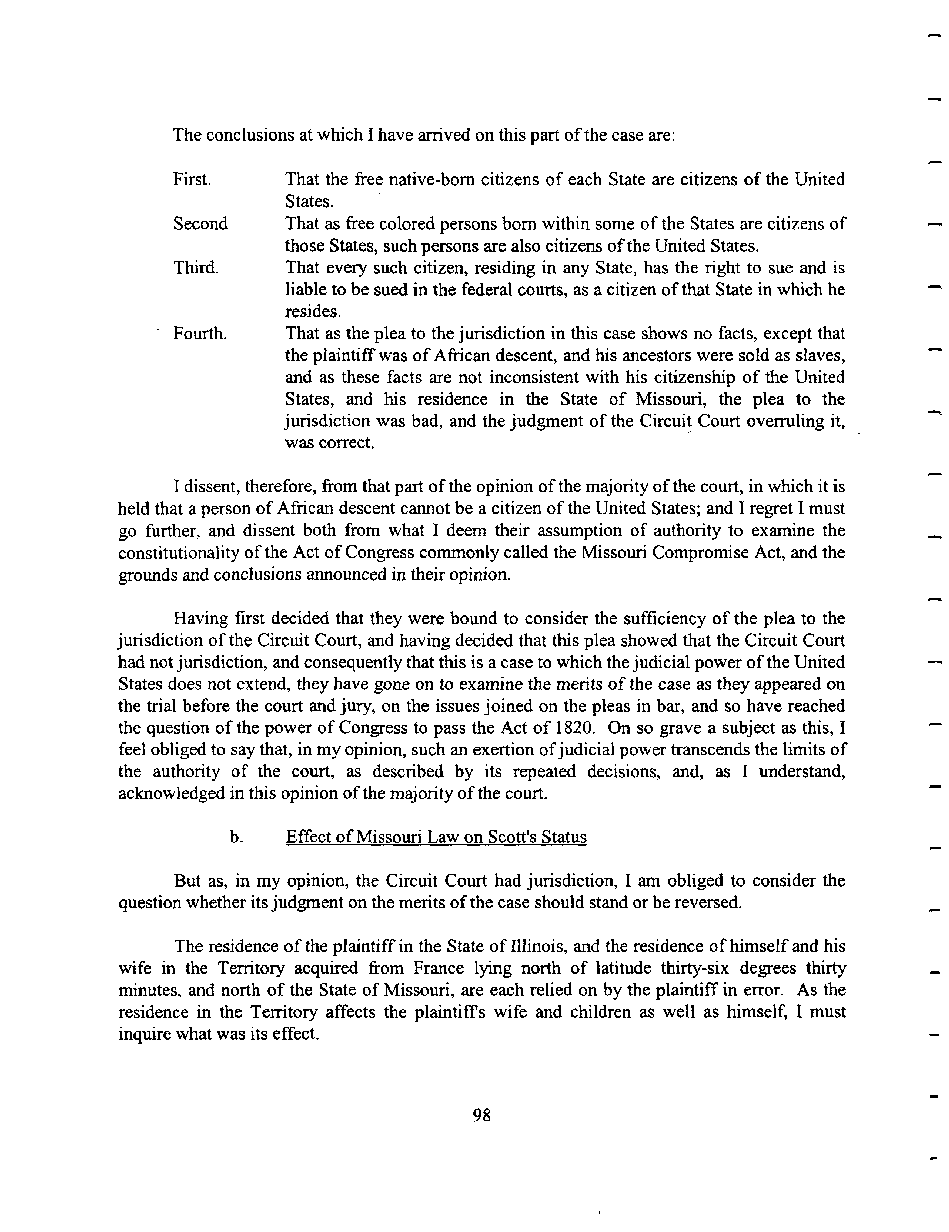|
The conclusions at which I have arrived on this part of the case are:
First. That the free native-born citizens of each State are citizens of the United
States.
Second That as free colored persons born within some of the States are citizens of
those States, such persons are also citizens of the United States.
Third. That every such citizen, residing in any State, has the right to sue and is
liable to be sued in the federal courts, as a citizen of that State in which he
resides.
Fourth. That as the plea to the jurisdiction in this case shows no facts, except that
the plaintiff was of African descent, and his ancestors were sold as slaves,
and as these facts are not inconsistent with his citizenship of the United
States, and his residence in the State of Missouri, the plea to the
jurisdiction was bad, and the judgment of the Circuit Court overruling it,
was correct.
I dissent, therefore, from that part of the opinion of the majority of the court, in which it is
held that a person of African descent cannot be a citizen of the United States; and I regret I must
go further, and dissent both from what I deem their assumption of authority to examine the
constitutionality of the Act of Congress commonly called the Missouri Compromise Act, and the
grounds and conclusions announced in their opinion.
Having first decided that they were bound to consider the sufficiency of the plea to the
jurisdiction of the Circuit Court, and having decided that this plea showed that the Circuit Court
had not jurisdiction, and consequently that this is a case to which the judicial power of the United
States does not extend, they have gone on to examine the merits of the case as they appeared on
the trial before the court and jury, on the issues joined on the pleas in bar, and so have reached
the question of the power of Congress to pass the Act of 1820. On so grave a subject as this, I
feel obliged to say that, in my opinion, such an exertion of judicial power transcends the limits of
the authority of the court, as described by its repeated decisions, and, as I understand,
acknowledged in this opinion of the majority of the court.
b. Effect of Missouri Law on Scott's Status
But as, in my opinion, the Circuit Court had jurisdiction, I am obliged to consider the
question whether its judgment on the merits of the case should stand or be reversed.
The residence of the plaintiff in the State of Illinois, and the residence of himself and his
wife in the Territory acquired from France lying north of latitude thirty-six degrees thirty
minutes, and north of the State of Missouri, are each relied on by the plaintiff in error. As the
residence in the Territory affects the plaintiffs wife and children as well as himself, I must
inquire what was its effect.
98
�
|

